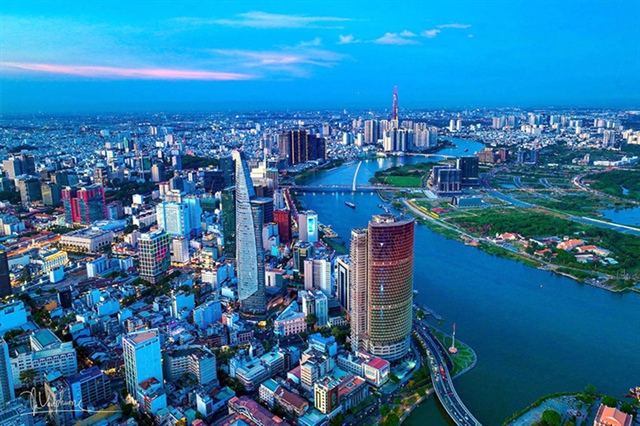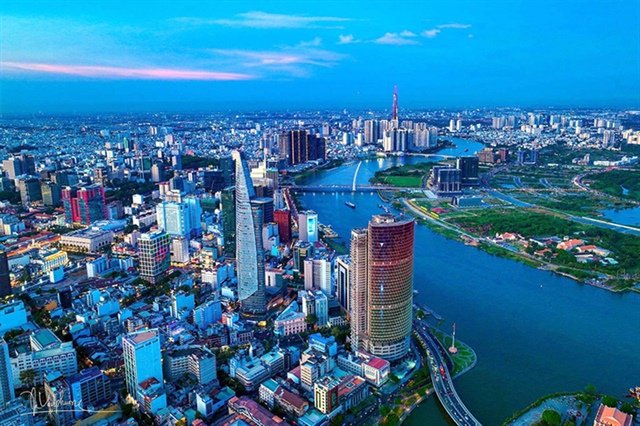|
Ho Chi Minh City is prime for developing int'l financial center: former German vice-chancellor
Amid the artificial intelligence (AI) trend and the deployment of Resolution 98 with special mechanisms for Ho Chi Minh City, it is now the ideal time to develop an international financial center in the city, Vietnamese-born Philipp Rösler, former vice-chancellor of Germany, said during an interview with Tuoi Tre (Youth) newspaper.

Ho Chi Minh City has many opportunities to develop an international financial center. Photo: Thanh Ha / Tuoi Tre
|
Rösler, who is now Vietnam's honorary consul in Switzerland and chairman of the Vietnam-Switzerland Economic Forum, was invited to join a team in charge of studying and providing proposals for the development of the international financial center.
He said he had arranged a meeting between a Vietnamese delegation led by Prime Minister Pham Minh Chinh to the 54th Annual Meeting of the World Economic Forum in Davos, Switzerland, and the Swiss banking and financial community in January this year, as the Vietnamese government had already decided to build up an international financial center in the southern metropolis.
Rösler returned to Vietnam to get in touch with Vietnamese banks as well as companies in the financial industry in order to prepare a master plan for this endeavor.
Regarding the benefits that an international financial center could bring to the Vietnamese economy, he said it would undoubtedly offer significant advantages to the banking and financial sector.
The financial sector serves the Vietnamese economy by offering credit, especially to small and medium enterprises and household businesses.
A financial center will definitely benefit not only Ho Chi Minh City but also the southern region and entire Vietnam, even the ASEAN region, Rösler believed.
Financial centers will also aid in attracting enterprises that provide housing and school infrastructure to meet the demands of the workforce located around these financial hubs.
He emphasized that it is not too late to establish a financial hub in Ho Chi Minh City.
It would have been too early five years earlier, but it will be too late if local authorities keep waiting for too long.
“Now is the right moment,” he affirmed, explaining that Vietnam’s economy is developing strongly and is on a steady growth trajectory.
The local economy should be supported by a good financial foundation, hence a financial center.
|

|
| An employee is at work at Intel Products Vietnam Co. Ltd. in Ho Chi Minh City. Photo: Supplied |
It should be designed to be unique and typically Vietnamese to meet the needs of the Vietnamese economy.
He was confident that the international financial center project in Ho Chi Minh City would be a success as most of the domestic financial enterprises are headquartered and operating in the city, which is one of the country’s three largest economic hubs, besides Hanoi and Da Nang.
The southern city is well positioned to lure more enterprises.
Ho Chi Minh City can draw from the experiences of existing financial centers worldwide and leverage technology, such as AI, to develop its own center and attract investors.
The city needs real estate planning and legal frameworks for the financial center as well.
The legal systems in Hong Kong, Shanghai, Dubai, and Singapore, all renowned for their financial centers, share similarities with the UK, particularly with London's longstanding financial hub.
The adoption of regulations similar to those in other financial centers helps international investors easily understand Vietnam’s legal system and bravely make investments.
Vietnam should also pay more attention to the development of large computer centers, which will help lure leading fintech companies to Ho Chi Minh City.
Tuoi Tre News
|